News & Media
Strengthening disability-inclusive practices across higher education
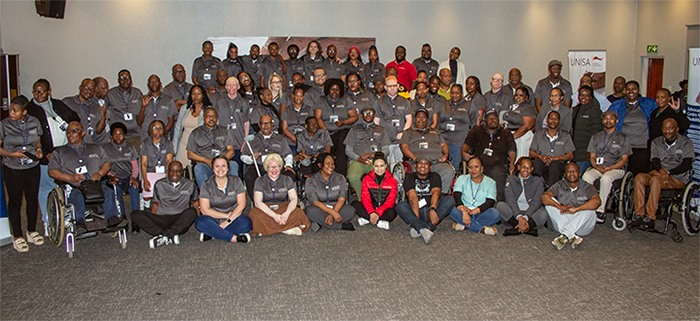
ARCSWiD regional forum representatives at the forum for Students Living with Disabilities National Conference
Unisa’s Advocacy and Resource Centre for Students with Disabilities (ARCSWiD) successfully hosted its inaugural forum for the National Conference for Students with Disabilities from 29 to 31 July 2025. The conference brought together regional student forum representatives under the banner of transformation and inclusion, aligned with Unisa’s 2030 Strategy: Forging Ahead.
Themed Leading change: Engaging in inclusive policies and empowered futures. the momentous event was anchored around engaging in inclusive policies, reviewing forum constitutions, developing leadership and electing the National Executive Committee of the forum.
In his opening address, the Dean of Students, Dr Olwethu Sipuka, highlighted the critical importance of student engagement and inclusive student leadership.
Prof Moloko Sepota, Acting Registrar, provided strategic insights into the university’s direction toward inclusive education, underscoring the university’s institutional commitment to access, equity and success for all students.
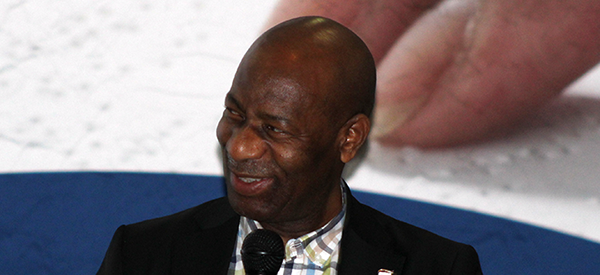
Prof Moloko Sepota, Acting Registrar
The keynote address was delivered by the Honourable Tshehofatso Chauke-Adonis, Member of Parliament and former Deputy Chairperson of the Unisa Students with Disabilities Forum. Her address struck a profound balance between personal journey and policy urgency, reigniting the commitment of students, academics and leaders to accelerate inclusion in higher education spaces.
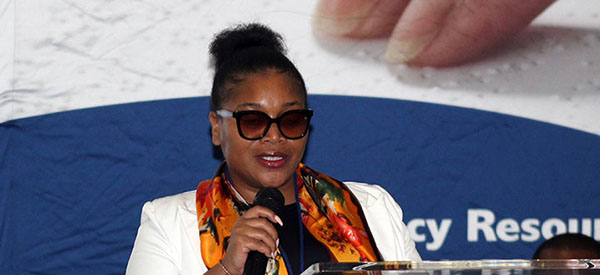
The Honourable Tshehofatso Chauke-Adonis, Member of Parliament and former Deputy Chairperson of the Unisa Students with Disabilities Forum
Legal frameworks and accountability in inclusive education
Ntshavheni Netshituni, Deputy Director: Administrative and Policy Manager at the Department of Women, Youth and Persons with Disabilities, and a PhD candidate specialising in policy development and policy implementation at Unisa, delivered a powerful presentation on the Constitution, the Higher Education Act and relevant legislation that addresses disability inclusion. His remarks, rooted in both policy and advocacy, brought invaluable clarity and direction to the floor discussions on legal frameworks and accountability in inclusive education.
Liana Joubert, the Deputy Registrar of Student Admission and System Integration, delivered a heartfelt and insightful presentation on elevating the voices of students living with disabilities, which deeply resonated with delegates and enriched the conference in meaningful ways.
Prof Francina Mahlo, a distinguished academic leader and researcher in the College of Education, shared critical insights into inclusive pedagogies and the imperative of institutional transformation.
Mohau Malatjie, representing the Department of Student Affairs, offered a strategic perspective on student development and advocacy within the broader student governance ecosystem. Fathuwani Makahane, a seasoned institutional transformation practitioner, inspired delegates with his reflections on navigating change and embedding equity within academic spaces. Advocate Sipho Mantula, researcher at the Thabo Mbeki African School of Public and International Affairs, broadened the discourse by offering an African-centred lens on leadership and the civic-minded resilience required to overcome structural and societal challenges.
The two-day conference was enriched by a series of compelling and thought-provoking presentations.
Participants were reminded of the importance of self-advocacy, resilience and ethical leadership, especially in uncertain times when adaptability is essential. The conference also emphasised that leadership within both national and regional disability forums must align with the institutional student governance framework in line with the university’s 2030 Strategy, particularly in advancing inclusivity, transformation, sustainability and digitalisation.
A significant highlight of the conference was the election of the National Executive Committee. Under the oversight of the Temporary Independent Electoral Commission, chaired by Mmangakane Mmako, students cast their votes both in-person and online. The newly elected leadership includes Brian Sibiya (National Chairperson, KwaZulu-Natal), Thabo Lenyora (Deputy Chairperson, Midlands Region), Hope Malapela (National Secretary, Mpumalanga), Lungile Dick (Treasurer, Eastern Cape), Thembele Xhamthwana (Education and Training, Eastern Cape), Charmaine Pretorius (Advocacy, Western Cape), Rhandzu Mathebula (Media, Polokwane), Garth Botto (Sports and Culture, Johannesburg) and a yet-to-be-confirmed Gender Officer from Tshwane. In his inaugural speech, Sibiya pledged to drive a unified and inclusive national agenda.
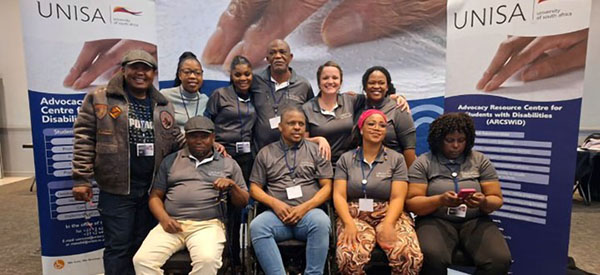
Newly elected National Executive Committee members of ARCSWiD.
Seated, from left: Mr Brian Sibiya (National Chairperson), Thembele Xhamthwana (Education and Training, Eastern Cape), Hope Malapela (Secretary, Mpumalanga) and Elsie Ndoweni (Chairperson, Tshwane).
Standing, from left: Bheki Nxumalo (Acting Deputy Director: ARCSWiD), Puseletso Makoro (Secretary, Midlands), Rhandzu Mathebula (Media, Polokwane), Charmaine Pretorius (Advocacy, Western Cape), Lungile Dick (Treasurer, Eastern Cape) and Topollo Masoma (Gender Officer, Tshwane)
Strategic relocation of ARCSWiD offices
In his closing remarks, Bheki Nxumalo, Acting Deputy Director: ARCSWiD, congratulated the new leadership and emphasised the need for ongoing collaboration between ARCSWiD, the SRC and the student governance division. He reaffirmed ARCSWiD’s commitment to transformation and announced the relocation of the ARCSWiD office from the Anton Lembede Building to the Winnie Madikizela Mandela Building, which will offer better accessibility and visibility for students with disabilities.
The conference concluded with a renewed commitment to strengthening disability-inclusive practices across higher education institutions, underpinned by adopted resolutions and a clear roadmap for implementation.
* By Bheki Nxumalo, Acting Deputy Director, ARCSWiD
Publish date: Wed Aug 27 13:07:00 SAST 2025


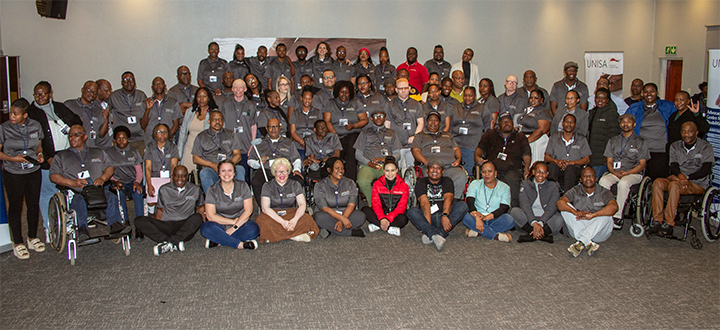 Strengthening disability-inclusive practices across higher education
Strengthening disability-inclusive practices across higher education
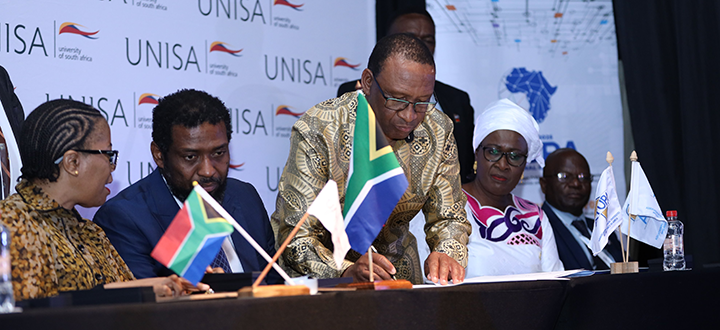 Unisa adds academic muscle to technical and vocational education in SA
Unisa adds academic muscle to technical and vocational education in SA
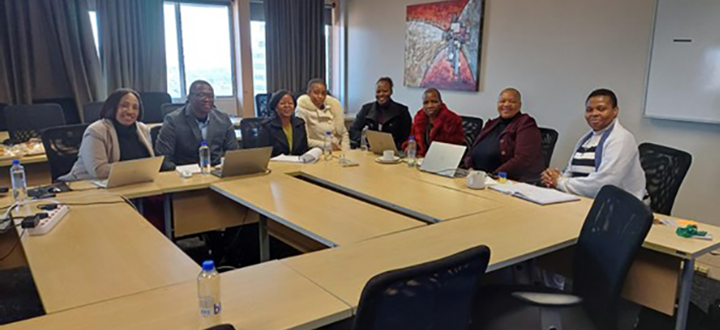 Unisa project envisions a humanised and student-centred approach to health interventions
Unisa project envisions a humanised and student-centred approach to health interventions
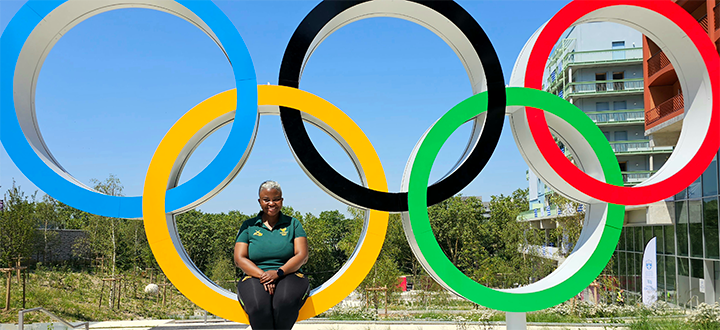 Unisan to lead SASCOC psychology working group
Unisan to lead SASCOC psychology working group
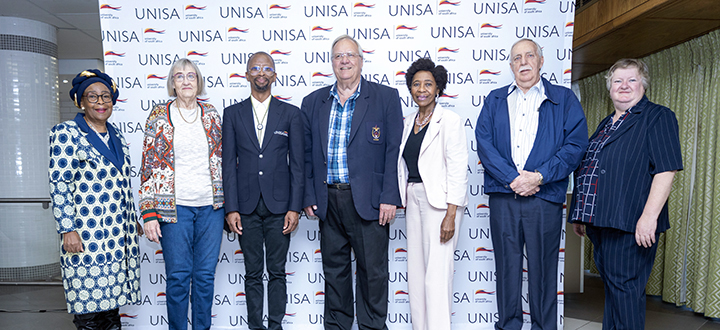 'Retired from work, not from life'
'Retired from work, not from life'